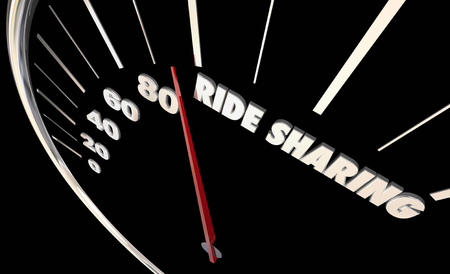
An Anchorage woman called for a cab in early December. The dispatcher said that one was enroute and it could be expected in 20 minutes.
But 50 minutes later, the cab hadn’t arrived. The woman called the company to confirm, and was informed their computers were down and they had no idea if the cab was on the way. Or not.
Because her jet would leave shortly, and she would need to be at the airport 40 minutes in advance to check luggage, the hapless traveler ended up doing the only thing she could do: She drove herself, parked at an off-airport lot, and resolved to pay $150 in parking — that was her transportation cost to and from the airport since of the length of her trip meant she’d be leaving her car for several days.
If the cab had arrived, she would have spent $40 roundtrip, plus tip. If Uber or Lyft had been allowed to operate, she may have spent less than $25, plus tip.
ENTER UBER
Stories like this abound in Alaska. Computers go down, dispatchers don’t have a backup, cabs are gross and dirty, riders get kicked to the curb (literally) when drivers find out they’re paying with a credit card, and women who are made uncomfortable by their drivers have no recourse, as drivers are independent operators and the cab companies have no way to rein in behavior.
SB 14 would change that by allowing ride-sharing companies like Uber and Lyft to operate in what is now a taxi-cartel state. Uber and Lyft, which are technology platforms rather than transportation companies, have mobile applications that have been downloaded by nearly 70,000 Alaskans who want to buy a ride, but can’t use the service because of the taxi cartel. This cartel is created by local governments that sell taxi permits for vast sums.
While much of what the Legislature does is partisan, Republicans and Democrats agree that ride-sharing services work fine in 47 other states, and they’ll work fine in Alaska if government gets out of the way and lets the free market work.
Sponsored by Sen. Mia Costello, SB 14 and its companion bill in the House, HB 132, sponsored by Rep. Adam Wool, D-Fairbanks, “Let’s Ride Alaska Act” has everything going for it as a bipartisan bill.
Jeremy Price, Alaska director for Americans for Prosperity, is among the many younger Alaskans who say ride-sharing opens up the free market, increases transportation options and can create economic growth and jobs for self-starters. During his recent “Pints and Policy” political briefings for Millennials, Price said the ride-sharing bill was a huge hit for his generation.
Competition is good, Price said, and besides, the cab cartel is a corrupt system that stifles innovation.
“Taxi permits in Anchorage have cost tens of thousands of dollars to acquire,” he told the Senate Committee on Labor and Commerce. “I personally have spent my career taking cabs and Uber rides in the DC area. They both have pros and cons. Here in Anchorage, Yellow and Checker have drivers who are independent contractors, not employees. Therefore, if you have a problem with a driver, complaining to Yellow and Checker doesn’t provide any relief or resolution. With Transportation Network Companies (TNC’s), passengers rate their drivers and drivers rate their passengers.”
The customer feedback loop with ride-sharing platforms is instantaneous and serves as a peer-to-peer monitor of the behavior of drivers and their passengers. People who get consistently low scores just don’t get to participate in the sharing economy.
Municipalities might not like SB 14 and HB 132, because it pulls regulation (read: cartel power) out of the local sphere of influence and up to the state level. That’s necessary, proponents say, to ensure that drivers of ride-sharing vehicles can drive from jurisdiction to jurisdiction, for instance from Wasilla to Eagle River, or from Homer to Kenai.
And it’s also essential to ensure that the every operation — taxi or ride-sharing — conforms to laws pertaining to independent contractors. Municipalities, for example, cannot exempt companies from worker’s compensation laws, but the state has that authority.
“The message we would like to send is that we need a transportation solution and we need the jobs,” said Sen. Costello. “We are in a recession. We should be doing all we can to create jobs and expand the economy — for stay at home parents who want to drive part-time, for military spouses, for other Alaskans who want to participate.”
SB 14 will be heard by Senate Finance next week and will be in the House Transportation Committee, too. More than 66,000 Alaskans who have downloaded the mobile app will be waiting to see if bipartisanship can work to the benefit of ordinary people with ordinary needs for reliable, affordable transportation.